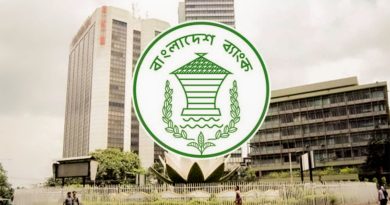Two months after their approval, five major reform projects under the World Bank’s Strengthening Institutions for Transparency and Accountability (SITA) initiative have yet to move into execution, officials said.
The projects—cleared hastily by the Executive Committee of the National Economic Council (ECNEC) in late June—aim to boost revenue, improve efficiency in public spending, and modernise the statistical system. But Planning Ministry officials admitted most of the development project proposals (DPPs) were incomplete or flawed.
A high-level meeting has been convened by the Planning Commission to review the projects. Planning Adviser Dr Wahiduddin Mahmud will chair the discussion with secretaries and senior officials of the line ministries, according to officials.
Loan support and cost breakdown
The five projects together carry a price tag of Tk 32.88 billion, of which the World Bank is set to provide Tk 30.45 billion—nearly $250 million—in highly concessional loans. Around $134 million will be interest-free, with the rest carrying a 2% interest rate, according to Economic Relations Division (ERD) officials.
The allocations include $82 million each for the Bangladesh Bureau of Statistics (BBS) and the National Board of Revenue (NBR), $36 million for the Public Procurement Authority (BPPA), and $25 million each for the Planning Division and the Office of the Comptroller and Auditor General (OCAG).
Project components
- BBS will implement the Statistical Capacity Enhancement and Modernization Project (SCEMP) at a cost of Tk 10.96 billion, aiming to develop an integrated national statistical system and deliver high-quality, timely data.
- NBR will execute the Strengthening Domestic Revenue Mobilization Project (SDRMP) worth Tk 10.09 billion to enhance its capacity in tax collection.
- BPPA will roll out the Procurement Modernization to Improve Public Service Delivery (PMIPSD) project, involving Tk 5.52 billion, to make electronic government procurement (e-GP) more effective and mandatory across government.
- The Planning Division and OCAG will take up smaller but strategic components to improve oversight and accountability in development spending.
Reasons for delay
According to ECNEC meeting minutes, several members had raised concerns over IT-related components of the projects. Following this, Special Assistant for ICT to the Chief Adviser, Faiz Ahmad Taiyeb, prepared a concept paper in consultation with Special Assistant for Finance Dr Anisuzzaman Chowdhury and senior officials of the Planning Ministry and ERD. The projects were meant to start only after revising the flawed DPPs.
Officials acknowledge the projects remain in limbo despite the World Bank board’s clearance on June 12 and loan negotiations held in May. “The projects have not moved into execution because the preparatory work was incomplete,” said one Planning Ministry official.






